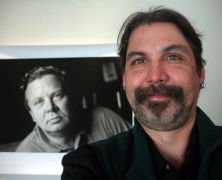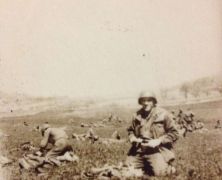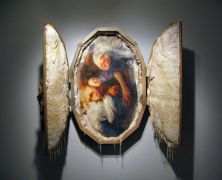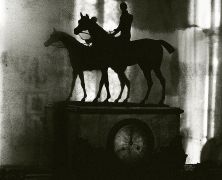And yet she kept on working, always working, writing those daring and serious stories which dive below consciousness, drawing us out of our comfortable selves and down into strange places;...
A Loyal Son of the South
My father was as loyal a son of the South as the South ever produced, save for two qualities. He never stopped growing, and he would not march in lockstep in a white society that...
Portfolio: Photographs
These photographs of my father, the late Willie Morris, and the letters he wrote to me are not, by themselves, related directly to one another. They came into being during the same 25-year...
The Death of John Gardiner
Will sat that night staring at a blank sheet of paper, conjuring up a London that his grandfather might have known. Accurate scholarship could re-create what had been bombed out, what had...
Portfolio: Mixed Media Sculpture
The interwoven visuals in my series are embedded with the personalities and deep strengths of my loved ones. Along with my longing for them, I seek to honor and memorialize them. These...
9 Penn Street
Although Mama drives me crazy with most of her string-saving, obsessive-compulsive habits, I have studied her like a map of the world to try to learn her secrets not just of living so long,...
Grandmother’s Cooking/Cuisine de Grand-mère
At my grandmother’s table, food was a serious topic. Endless discussions of country butter versus store bought; arguments over seasoning; backhanded compliments about skills. Without even...
Poems
On the days I am not my father holding you is enough until holding you is no longer enough for either of us. I listen well.
Fifth Born II: The Hundredth Turtle
I looked at the heap of her body on the living room floor, and I felt something for her that reminded me of when I looked at the river and knew that at the bottom there was a tempting...
Spring 2013
This issue explores the idea of “generations,” which includes notions of time, ancestry, legacy, inheritance, what we know versus what we imagine–a sense of continuity and finally a sense of loss. While these works are highly personal, they reveal the ways that historical knowledge is unique to the human experience. As T.S. Eliot wrote, “No poet, no artist of any art, has his complete meaning alone. His significance, his appreciation is the appreciation of his relation to the dead poets and artists. You cannot value him alone; you must set him, for contrast and comparison, among the dead.”










